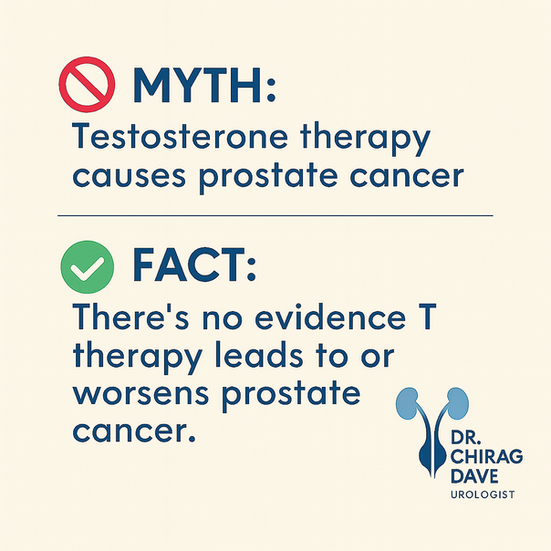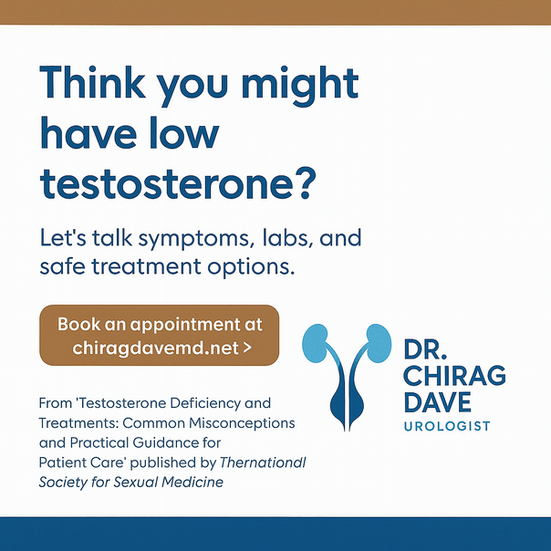Testosterone Therapy: Myths vs Facts (TRT Explained)
- Chirag Dave
- Aug 28, 2025
- 2 min read
Testosterone is a vital hormone that plays a major role in men’s health. It influences energy levels, mood, muscle mass, bone density, and sexual function. But when levels drop—a condition known as low testosterone (Low T)—men may experience fatigue, weight gain, low libido, erectile dysfunction (ED), and mood changes.
For many, testosterone replacement therapy (TRT) can be a safe and effective solution. Unfortunately, myths and misconceptions about TRT often create fear or hesitation. Let’s break down the most common TRT myths vs facts so you can separate fiction from science.
Myth 1: Testosterone therapy raises your heart attack risk
Fact: This is outdated information. Multiple large studies have shown that TRT does not increase the risk of heart attacks or cardiovascular disease. In fact, some research suggests testosterone therapy may even improve heart health by supporting cholesterol balance, reducing fat mass, and improving blood sugar levels.
Myth 2: All oral testosterone damages the liver
Fact: Older oral testosterone pills were linked to liver toxicity, but newer formulations—such as testosterone undecanoate—avoid this problem by using advanced delivery systems that bypass the liver. Today, TRT can be prescribed safely through oral capsules, injections, gels, or patches, depending on your needs.
Myth 3: Testosterone therapy causes prostate cancer
Fact: One of the most persistent myths is that TRT causes or worsens prostate cancer. There is no evidence to support this claim. Research has repeatedly shown that testosterone therapy, when properly monitored, is safe for prostate health and does not increase cancer risk.
Why Testosterone Replacement Therapy Matters
Low testosterone is more common than many men realize, especially with age. Symptoms often include:
Fatigue and lack of energy
Erectile dysfunction and low libido
Muscle loss and weight gain
Mood changes, irritability, or depression
These symptoms can significantly impact quality of life, but TRT offers proven benefits, including:
Increased energy and stamina
Stronger libido and sexual performance
Better mood and mental focus
Improved muscle mass and strength
Enhanced overall well-being
Key Takeaway
Testosterone therapy is safe, effective, and backed by modern science—when prescribed and monitored by an experienced doctor. Don’t let myths prevent you from getting the treatment you may need.
- If you suspect you have low testosterone, talk to a urologist or hormone specialist about testing, symptoms, and the safest treatment options available.


%20(2).png)
















Comments